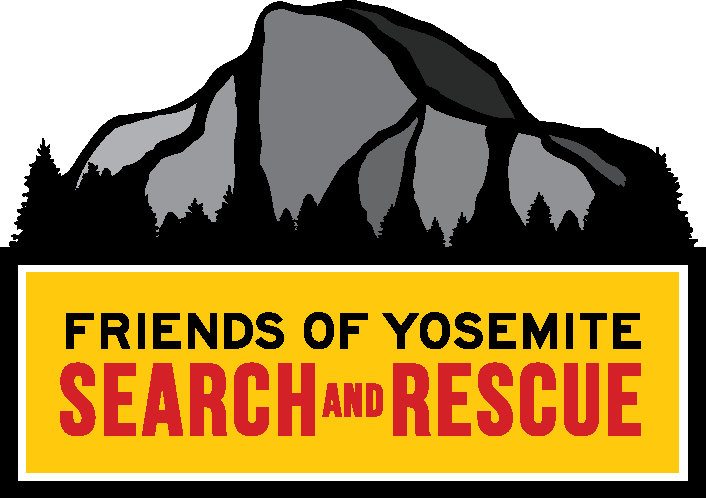The Most Powerful Thing Featuring Moose Mutlow (Pt 2)
Since 2002 Moose Mutlow has been a member and senior trainer of Yosemite Search and Rescue, working as a technician and within Incident Command. Since 2006 Mutlow has been a Coordinator and Lead Trainer for Family Liaison Officer (FLO) Program in Yosemite National Park, and since the Fall of 2019 he has lead FLO trainings for the National Park Service teaching courses in Yosemite, Arches, Teton, Smokey Mountain and Yellowstone National Parks. He recently published, “When Accidents Happen: Managing Crisis Communication as a Family Liaison Officer.”
(Warning: this article discusses death and trauma and may be upsetting for some readers.)
“In order to live you have to understand death.” -Moose Mutlow
No one comes to Yosemite expecting tragedy to strike, but with millions of visitors coming to the park each year tragedies do occur. The shock and emotions experienced by families trying to navigate a tragedy, especially if it occurred in a traumatic way, can be incomprehensible. Families need someone to help them navigate these unthinkable situations. In the park, this support person is called a “FLO,” or Family Liaison Officer.
FLOs act as the go between for families and the SAR team. FLO members communicate to families the reality of a tragic situation with an empathetic truthfulness. They bring new information to the family, and find answers to questions the family has. A FLO may be with the family as they say goodbye to a loved one, help shield them from traumatic scenes, or walk the family back down the trail after an accident. The FLO is an “empathetic and compassionate witness at that moment.” A gentle guide for a family in crisis.
Operationally the FLO insulates the SAR team from the emotional component of working with the family. Often, the job of the SAR team is already traumatic, and maintaining a level of professional separation is necessary-- a professional separation that could become impossible when exposed to the emotions of family members. FLOs create the space for families to grieve and find support, while giving SAR members the space to do their challenging work.
SAR team members (FLOs included) live with a close awareness of death that is foreign to most people in the US. “The exposure to tragedy in national parks for everybody who works in parks is so much greater than anyone really appreciates…. The idea of mortality is a hard thing, particularly with people in active sports and having a great time on vacation. But if you work in emergency you’ve dealt with death-- you’ve bagged somebody, or you’ve done compressions, or you’ve watched the immediate aftermath of a death because the family is right there. That’s an undeniable grounding in mortality.”
Mutlow’s many experiences around death as a SAR member and FLO have given him insights into responding to people dealing with death and tragedy. He says we are going to experience emotions about death, but we can’t deny that a death has happened. Death can make us feel unsure about how to reach out and support someone. Maybe you worry about “disturbing” them with a call, or being in a room with a person when they get bad news. We have to learn to just “be with them, because death is a very isolating thing. The act of being with somebody when they’ve got this bad news and letting them have control in a world in which their foundation has been ripped away.” They have control over something-- of me being in the room, or choosing to answer my phone call, or returning a message. We have to reach out and give them that option. Reach out, not in an imposing way, but in a way that asks permission. “To do nothing, that’s criminal. To pretend it hasn’t happened because it’s hard and uncomfortable and makes you sad-- that’s [selfish]. What search and rescue does at its finest is to become selfless in a moment.”
In search and rescue a huge group of people come together to fulfill a goal and complete a mission. “You all did it together-- it’s us as a team-- it’s selfless-- it’s service… in that moment you complete the goal for someone else.” In the park “we’re incredibly fortunate to be able to contribute on this high level, with a high functioning team.” Mutlow says there is a myth surrounding YOSAR that views rescuers as god-like, and while there have been many truly exceptional rescues, “for the most part it's very ordinary people doing extraordinary tasks... week in and week out.”
This shift of perspective helps us recognize the incredible power of ordinary people performing selfless acts. “We live in a selfish world and yet everyday there are thousands of people who are volunteers on search and rescue teams, and volunteers for Meals on Wheels, and they go and visit people and help kids, and they are selfless-- that is the most powerful, pivotal thing about the human condition-- to give to others.
____________________________________________________________________
Got a second? Check out Royal National Lifeboat Institute, a rescue organization that has had a lifelong impact on Mutlow.


